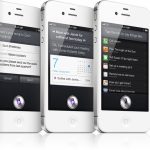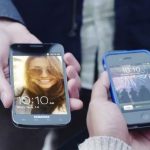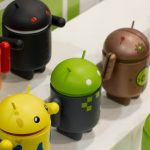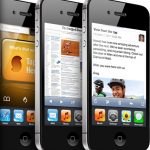BlackBerry, Windows Phone can't catch a break

Another three-month handset report is available from comScore, and BlackBerry and Windows Phone continue their relentless declines. However, new Windows Phone 7.5 handsets shipped after the analyst firm's reporting period. True test will be the next round of data.
BlackBerry is literally in free fall, with it's share of US smartphone subscribers falling 4.5 points to 17.2 percent from the three months ending in June to the same period closing in October. That's right. Three months! A year earlier, BlackBerry share was 35.8 percent. So since October 2010, the smartphone OS cut its subscriber share in half. Quick, grab some O-negative blood, BlackBerry opened an artery!
Siri humbled my Android

I chuckle whenever someone in comments calls me anti-Apple. Much of what I write here derives from experience. Sometimes that works for Apple, or whatever other vendor, sometimes against it. Today, I've got a wet, smoochy kiss for iOS 5 and iPhone 4S and kick aside the head for Android and Samsung Galaxy S II Skyrocket.
Yesterday, my daughter met up with a friend for the Toyland Parade in the North Park community of San Diego. She's a live-in-the-moment, never-think-ahead teen. (Who isn't?) So, of course, when we got in the car and I expected my girl knew the way to the meetup, she didn't. After I chided her, out came the white iPhone 4S, and she spoke: "Direction to Claire de Lune". I knew where this was going, thinking: "There's no way Siri is going to get this right".
'The Next Big Thing' isn't iPhone

Last night I watched Samsung TV commercial "The Next Big Thing is Already Here" about a dozen times on YouTube. I'm a sucker for good advertising, and this one is clever to a punch and already is viral among tech blogs. Apple used to make adverts like this one -- inventive, clever, memorable -- now they're staid and boring. Anyone remember Apple's hugely successful "Switchers" and "Get a Mac" marketing campaigns from the last decade? This new TV spot is a hilarious poke at yokels waiting in line for the newest iPhone, all without mentioning Apple; meanwhile something better is already here -- from Samsung.
Now before some commenter calls me anti-Apple, because I watched the commercial a dozen times and it snarks the iPhone cult, my interest is bigger. The advert is clever in so many ways, particularly how it uses jump cuts or little touches make it real. Example: When the iPhone line waiters ask to see a Samsung Galaxy S II, the owner holds it up. Someone in the line leans forward, raises his arm and says: "Can I see it with my hands?" I've embedded the long version above, which isn't as tight or dramatic as the 60-second spot. There's something to be said about tighter editing, more closeups and shorter jump cuts. The 30-second edit is good, too. Update: The 15-second ad is absolutely cruel.
Did sagging iPhone sales slow the whole smartphone market?

The answer depends on how third quarter sales are interpreted. By one perspective, gangbuster smartphone growth is over, as mature markets saturate and economic woes in Europe zap consumer budgets. By another viewpoint, a slowdown in iPhones sales -- ahead of a product transition -- pulled down the entire market. If the latter is right, iPhone sales could be considerably larger during fourth quarter than even the fiercest Apple apologist's or investor's dreams.
Today, Gartner released Q3 smartphone sales, with emphasis on sales. Most other analyst firms report shipments, which are those going into retail channels. Gartner reports actual sales to end users, which offer more realistic perspective about the smartphone market. Two data points differentiate third quarter sales from recent others: Smartphone growth slowed sequentially and iPhone/iOS market share declined. The question: Are these two sales changes related or coincidental?
Android fragmentation doesn't matter

I've gotten off my purest high horse and come to look at Android differently. Starting with my purchase of the HTC-manufactured Google Nexus One in January 2009, I used pure Android smartphones, untouched by hardware maker or cellular carrier mods; no skins, no extras. Pure Android was the best, I believed. But over the last couple months, I've come to realize that the best thing about Android is what third parties -- and not Google -- do to make it better. Go ahead, eat that Ice Cream Sandwich on Galaxy Nexus. Gingerbread is good enough for me.
Pundits of all types harp about fragmentation -- that it holds back Android and makes competing against iPhone harder. Oh yeah? If 550,000-plus Android activations a day is a problem, give it to me. What a failure to have. At the end of September, Android smartphone OS share, as measured by US cellular subscribers 13 or older, was 43 percent in third quarter, up from 39 percent at end of June, according to Nielsen. By comparison, iOS continued a year-long trend of no growth, with 28 percent share.
How to make failed Android tablets as successful as smartphones

A new version of Android will be available in November, initally on the Samsung Galaxy Nexus smartphone. Much of the analysis of this Ice Cream Sandwich version of Android is focused on the implications of it running on both smartphones and tablets, where older versions of Android ran on one or the other (1), as well as shiny new gimmicks such as face recognition to unlock a handset.
This unification of smartphones and tablets is a red herring. Other things matter much more for Android. Android tablets are failing in the market, while Google’s smartphones sell in enormous numbers. This is a major issue for Google.
AT&T activates 1M iPhone 4S handsets, as Android army advances

AT&T's third quarter earnings are out, and the big news is iPhone vs everything else. Either iPhone 4S is a huge success or Android, depending on how the numbers are cut -- and really both. Either way, AT&T's churn rate was just 1.1 percent -- on par with the year-ago-quarter -- and signed subscribers are staying despite all that customer grumbling about dropped calls.
The nation's second-largest carrier sold 4.8 million smartphones during Q3 -- or about two-thirds of all "post-paid" handsets. Now more than half -- 52.6 percent -- of AT&T's 68.6 million post-paid subscribers have smartphones -- that's up from 39.1 percent a year ago.
Are iOS 5 and iPhone 4S already outdated?

Do I even need to ask?
Let the debate begin. Google and Samsung delayed their planned Android 4.0 operating system and Galaxy Nexus smartphone launches until today in Hong Kong instead of October 11 in San Diego. They claimed the delay showed respect for Apple cofounder Steve Jobs who died two weeks ago. Some members of the Apple Fanclub of bloggers and journalists insist that reason is a smokescreen for software or hardware problems. Unlikely considering nothing ships until November. Looking at what Google and Samsung unveiled today, the companies had plenty of good reasons to announce before iPhone 4S sales started October 14. It would have been the competitive equivalent of launching a nuclear strike.
What if iPhone 5 isn't LTE?

Stated differently: what does Verizon know that you don't?
I've been asking both questions after reviewing Verizon's legal filing supporting Samsung in its patent dispute with Apple. America's largest wireless carrier has asked a California judge to reject Apple's request to grant preliminary injunction against four Samsung 4G devices: Droid Charge, Galaxy S 4G, Infuse 4G and Galaxy Tab 10.1. Verizon's major argument, but not the only one, is that the injunction will hurt adoption of its next-generation 4G LTE network. Samsung's Droid Charge, which would be barred from US sales if the injunction is granted, is one of four LTE handsets that Verizon carries. Surely this close to launch Verizon knows whether or not iPhone 5 will support LTE. If iPhone is so important to Verizon, if iPhone 5 sales are expected to be huge (so say financial analysts) and if iPhone 5 could more than fill the void left by Droid Charge, why take a stance against Apple?
56% of new smartphone buyers choose Android, only 28% iPhone

Well, so much for Apple Fanclub antics a few months ago, when a wave of blog and news posts asserted that Verizon iPhone's launch had stalled Android sales and iPhone 5 would beat them back. It's more wishful thinking published as fact, that has spread yet another iPhone urban legend across the web. The truth is far different. Androids continue to gain massively against iPhone, according to data Nielsen released today. This isn't abnormality but a trend Nielsen has tracked for more than a year.
Among new smartphone buyers -- "acquirers" in Nielsen perlance -- 56 percent chose an Android handset in August. Among all phone buyers: 43 percent. iPhone was 28 percent for both categories. "The preferences of these so-called recent acquirers are important as they are often a leading indicator of where the market is going", Don Kellogg, director of Telecom Research & Insights, explains in a blog post.
Recent Headlines
Most Commented Stories
BetaNews, your source for breaking tech news, reviews, and in-depth reporting since 1998.
Regional iGaming Content
© 1998-2025 BetaNews, Inc. All Rights Reserved. About Us - Privacy Policy - Cookie Policy - Sitemap.